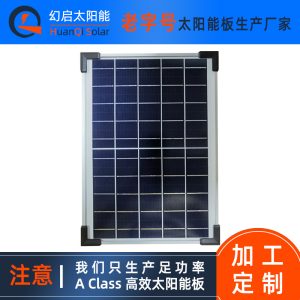By generating clean electricity, solar power generation systems reduce the amount of coal and natural gas burned by power stations. This reduces the pollutants and greenhouse gases released into the atmosphere, which will lead to diseases and man-made climate change. Fossil fuels also require mining processes, such as hydraulic fracturing and open-pit coal mining, which have a negative impact on the environment, such as land degradation, water pollution and mine fire.
The installation of solar power generation system will obviously have a positive impact on the environment. But now there are several different types of systems, including systems with batteries. How do they compare in terms of environment?

Grid-connected without battery
Most of the existing solar systems are connected to the grid and have no batteries. The power of the solar panel is first used by the on-site equipment, and the surplus part will be output to the grid for your neighbors to use. Any shortage is provided by the grid, which is relatively cheap and efficient, and uses simple inverters that depend on the stability of the grid. However, it is not very self-sufficient, because the inverter will shut down in case of power failure.
Because the grid has the least energy storage, the centralized power station will reduce its output to compensate whenever your solar system is running. Each kilowatt-hour of solar power generation will correspondingly reduce the power generation of the power station. In fact, the benefits are even greater, because power stations not only have to meet the needs of end users, but also bear the losses generated in power lines. The losses in remote areas may exceed 20%. Some people believe that due to the lack of flexibility of coal-fired power stations, they will consume coal at the same rate regardless of the amount of solar power generation. In fact, they react quickly enough.

Battery grid connection (mixed)
There are many reasons for incorporating batteries into grid-connected solar power generation systems. Some of these systems are very self-sufficient because they can supply power to your equipment during power grid blackout. With enough batteries and solar panels, importing from the power grid may become a rare event. However, adding batteries will not increase your net impact on fossil fuel power generation. Of course, the amount of electricity input from the power grid at night is less. On the other hand, the amount of electricity output during the day is also less. The battery will also be lost during charging and discharging, so the house will consume slightly more electricity than when there is no battery.
Off-grid
With the decline of battery prices, many people are now considering cutting off the connection to the power grid. This is certainly the most self-sufficient choice, but its adoption will be limited by the cost – a complete off-network system may cost about 200000 yuan for a typical family. From the perspective of environment, cutting off the power grid connection has disadvantages. At the current price, it is meaningful to install a relatively large number of solar panels to help power the house in a cloudy winter week or rainy season. Since the off-grid system cannot output to the grid, the excess power generation in sunny days will be wasted. Off-network households usually use diesel generators to spend the worst few weeks, or pay guests for the same amount of extra consumption. The use of this small amount of fossil fuel should also be taken into account. In places with power grids, grid-connected solar panels are more environmentally friendly than off-grid solar panels.

conclusion
The grid-connected solar system without batteries is a very environmentally friendly choice, because the excess solar energy is imported into the grid, reducing the damage caused by fossil fuels.
The installation of grid-connected batteries will not directly benefit the environment, but it does help to develop the economies of scale of battery manufacturing and installation, which will help us to make a long-term transition to a 100% renewable power system.
Under certain circumstances, if batteries can help super-large solar systems, avoid grid infrastructure construction or upgrading, or if they can achieve an environment-friendly off-grid lifestyle, batteries may have direct environmental benefits.
If you want to know more about solar panels, please contact us, the solar panel manufacturer – Huanqi Technology (Shenzhen) Co., Ltd.











